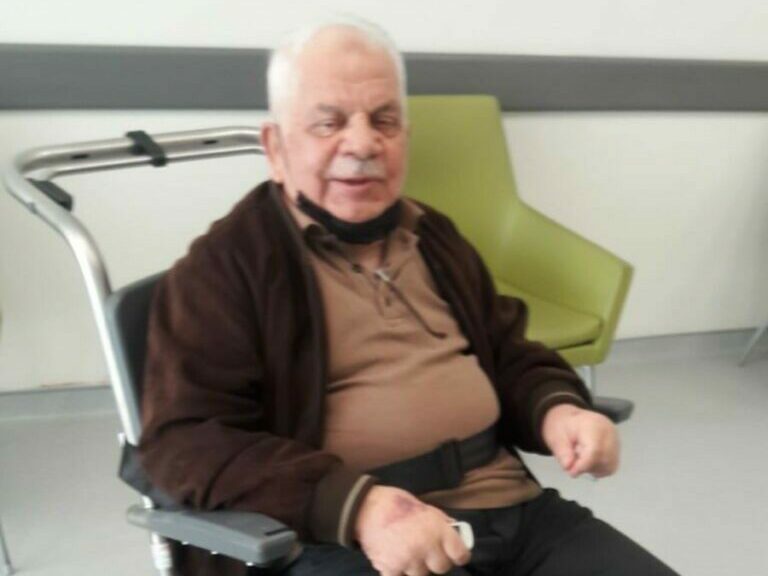Nusret Muğla, 84, who was arrested in January on alleged links to the Gülen movement despite suffering from multiple health problems, has not been given his heart medication in prison, Bold Medya reported.
Muğla, who is currently in western Turkey’s Manisa Prison, needs to take 14 different medications on a daily basis, but his prescription for heart medication was not renewed in prison. Muğla’s family said they are worried he was not able to take his medication, despite a doctor’s report.
Muğla’s family also said the general hospital in Manisa had issued a report saying he was fit to stay in prison despite having several critical illnesses, such as heart disease, high blood pressure, prostate cancer and renal and balance problems.
“Our lawyer will file an appeal against the hospital’s report,” said his son, Mustafa Said Muğla. “He is continuously moving between a normal cell and a quarantine cell because he needs to go to the doctor.” According to Mustafa Said Muğla, the health report stated that his father should stay in a cell without stairs, which was not adhered to.
Inmates who need to go to hospital are required to stay in a quarantine cell when they return to prison due to COVID-19 measures.
Muğla was arrested in October 2016 for alleged membership in the Gülen movement, a faith-based group inspired by Muslim cleric Fethullah Gülen, and underwent an angiography during his time in jail. He was released for health reasons seven months later but was subsequently sentenced to six years, three months in prison.
Turkish President Recep Tayyip Erdoğan has been targeting followers of the Gülen movement since the corruption investigations of December 17-25, 2013, which implicated then-Prime Minister Erdoğan, his family members and his inner circle.
Dismissing the investigations as a Gülenist coup and conspiracy against his government, Erdoğan designated the movement as a terrorist organization and began to target its members. He intensified the crackdown on the movement following a coup attempt on July 15, 2016 that he accused Gülen of masterminding.
According to a statement from Interior Minister Süleyman Soylu on February 20, a total of 622,646 people have been the subject of investigation and 301,932 have been detained, while 96,000 others have been jailed due to alleged links to the Gülen movement since the failed coup. The minister said there are currently 25,467 people in Turkey’s prisons who were jailed on alleged links to the movement.
The purge has resulted in a drastic increase of political prisoners in Turkish prisons, some of whom are seriously ill.
According to the Human Rights Association (İHD), there are more than 1,605 sick prisoners in Turkish prisons, approximately 600 of whom are critically ill. Although most of the seriously ill patients have forensic and medical reports deeming them unfit to remain in prison, they are not released. Authorities refuse to release them on the grounds that they pose a potential danger to society. In the first eight months of 2020, five critically ill prisoners passed away because they were not released in time to receive proper medical treatment.
Since April 2020, four seriously ill prisoners over the age of 70 have died in penal institutions; five inmates suffering from cancer died shortly after they were released; and 16 died of chronic illnesses while imprisoned.
Source: SCF



